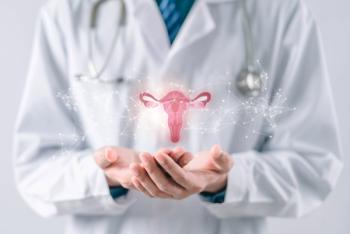
Study finds trouble sleeping, sleep apnea, and short or long sleep duration are linked to higher odds of hypertension in postmenopausal women.

Study finds trouble sleeping, sleep apnea, and short or long sleep duration are linked to higher odds of hypertension in postmenopausal women.

Survey reveals nearly 40% of women feel misdiagnosed during perimenopause, highlighting critical gaps in women's health care and treatment approaches.

Jessica Golbus, MD, discusses the benefits of cardiac rehabilitation and innovative solutions to improve access and engagement.

Survey reveals limited allergy referrals in pregnancy due to lack of guidance and long wait times, highlighting need for better education.

A study found that women with endometriosis exhibit reduced blood pressure responses to stress.

Jun Wang, PhD, and Rajesh Miranda, PhD, outline why prevention alone is insufficient and emphasize the need for early diagnosis for children affected by prenatal alcohol exposure.

Higher waist-to-hip ratio was linked to poorer cognitive performance in early postmenopause, though it did not alter hormone therapy effects.

Drawing on work by Rajesh Miranda, PhD, and Jun Wang, PhD, new evidence shows that prenatal alcohol exposure alters cognitive flexibility.

A study found widespread disparities in contraceptive access, adverse effect burdens, and limited male-focused options.

Nonmosaic segmental aneuploid embryos show reduced yet real reproductive potential, offering new guidance for PGT interpretation and patient counseling.

FDA updates labeling for menopausal hormone therapy, removing broad boxed warnings and adding guidance for younger symptomatic patients.

A phenotype linking hypertensive disorders of pregnancy with preterm birth and large-for-gestational-age infants may reshape understanding of maternal cardiovascular risk.

Evidence shows that women experience lower referral, enrollment, and completion rates in cardiac rehabilitation programs vs men.

An international panel of women’s mental health specialists urges the DSM to recognize postpartum psychosis as a distinct condition.

New research shows criminalizing drug use in pregnancy discourages early prenatal care and may push some patients away from hospital deliveries.


Review some of the top stories from the Contemporary OB/GYN website over the past week and catch up on anything you may have missed.

New research shows that antimüllerian hormone levels may help clinicians better estimate fertility preservation and future pregnancy outcomes in women with cancer.

New research shows an increase in neurodevelopmental disorder risk among children exposed to maternal COVID-19 infection in utero.

Elisabet Stener-Victorin, PhD, explains how identifying distinct PCOS phenotypes can help clinicians tailor treatments to each patient’s needs.

A new study finds that laws penalizing substance use during pregnancy may discourage pregnant people from seeking medical care.

A study found mothers with preterm hypertensive disorders of pregnancy had the highest cardiovascular disease mortality risk with larger infants.

A study found that 5 major adverse pregnancy outcomes were linked to increased long-term atrial fibrillation risk.

Researchers found that raising screening rates in federally qualified health centers to national goals could prevent thousands of cancers.

The FDA’s investigational device exemption approval allows FemBloc to enter the final phase of its pivotal trial.

A study found that administering prophylactic antibiotics shortly after a second degree tear lowers the risk of wound complications.

A new study has identified 4 subgroups of polycystic ovary syndrome with unique hormonal and metabolic profiles.

The FDA has approved injectable fosfomycin for adults with complicated urinary tract infections, offering a new treatment option against multidrug-resistant bacteria.

Elective egg freezing increased nearly 4-fold from 2014 to 2021, but only 5.7% of women later returned to use their frozen oocytes.

Take a quick look at everything you may have missed in October, including the latest FDA updates, top stories, and exclusive interviews.